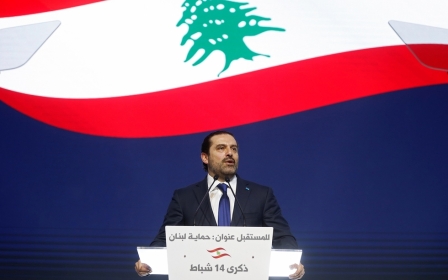Amid setbacks, Lebanon's Hariri urges parties to form government

Lebanon's prime minister-designate Saad Hariri warned on Tuesday that the government needs to be formed in order to combat the country’s tough economic situation.
"We have fallen behind - we must form the government", he told reporters at the presidential palace, after a long meeting with President Michel Aoun.
"The president and I are determined to meet again and finish this issue, because the country cannot continue without a government," Hariri said.
He called for the diverse group of political factions in the country to cooperate on reviving the government-building process.
Lebanon is governed by a complex system that guarantees a delicate balance between religious communities and their political parties, so decisions are made by consensus, making for protracted bargaining.
The country's parliamentary elections happened in May last year but lawmakers have since failed to form a government.
Efforts to form a government have been obstructed by conflicting demands for cabinet seats that must be parcelled out in line with a sectarian power-sharing system.
In November 2018, Hariri accused his main political rival Hezbollah of obstructing the formation of a new cabinet and last month, he promised that Lebanon would have a government "by the end of the year".
"The economic situation is difficult, but this is not to say it is impossible," Hariri said on Tuesday.
With the world’s third-highest ratio of debt to GDP, Lebanon has endured years of weak economic growth and was urged by the International Monetary Fund last year to carry out “urgent” measures to put public finances back on a sustainable footing.
The international community pledged up to $11.5bn in aid and loans for Lebanon at a conference in Paris last April.
But the promised funding is largely destined for infrastructure projects, which cannot start without a new cabinet.
Stay informed with MEE's newsletters
Sign up to get the latest alerts, insights and analysis, starting with Turkey Unpacked
Middle East Eye delivers independent and unrivalled coverage and analysis of the Middle East, North Africa and beyond. To learn more about republishing this content and the associated fees, please fill out this form. More about MEE can be found here.




